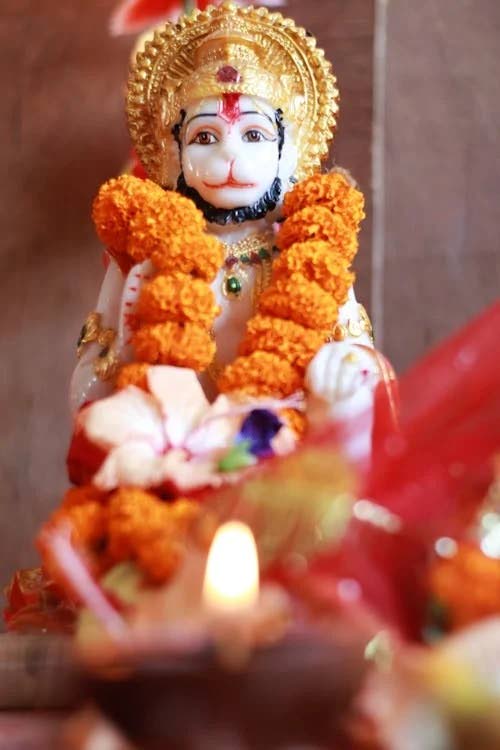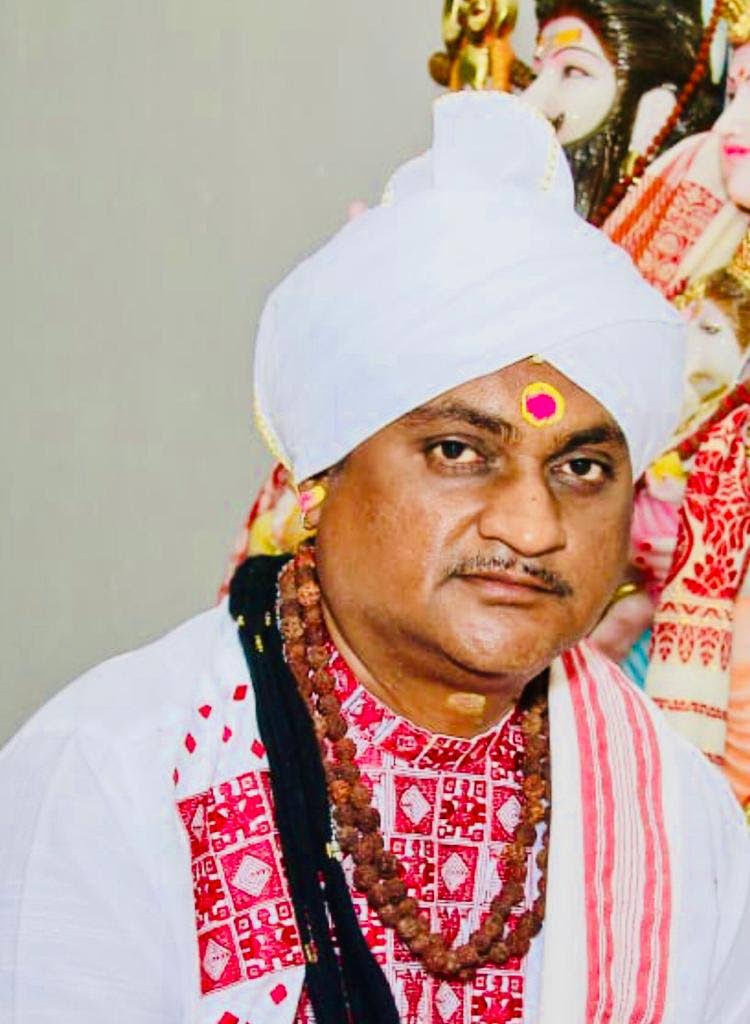Hanuman Jayanti – celebrating the divine hero

BAVINA SOOKDEO
Hanuman Jayanti, celebrated on April 23, is a Hindu festival marking the birth of the revered deity Lord Hanuman. It holds deep significance for millions of Hindus worldwide.
Pundit Satyanand Mahabir Dubey, the spiritual leader of the Tryambakeshwar Mahadev Mandir in Charlieville, said the celebration varies by time and tradition in each state of India.
“In most northern states of India, the festival is observed on the full-moon day of the Hindu month of Chaitra (Chaitra Purnima),” Mahabir Dubey told Newsday. The 47-year-old pundit has 28 years of experience.
Hanuman is depicted as a half-monkey, half-human figure. In explaining the symbolism Mahabir Dubey said, “Hanuman is one of the incarnations of Lord Shiva, one of the deities that is part of the Hindu Trinity. He is the most devoted follower of Prince Rama (a reincarnation of Lord Vishnu who is the sustainer of the universe in Hinduism), so he features a lot in the Ramayana as well as lots of other traditional Hindu scriptures, historical accounts and artworks.
"Hanuman has special powers and qualities that he uses to help Rama rescue his wife, Sita, who was kidnapped by the demon king, Ravana. Since he uses his powers in the service of others, he has come to symbolise the perfect Hindu – one who has lots of special qualities but is not selfish with them and uses his abilities to help people.”
The attributes or qualities that "make him a model whose example Hindus can follow,” also “represent some of the core concepts of Hinduism."
Why exactly is Hanuman worshipped by so many?
“Hanuman is worshipped as a deity with the ability to gain victory over evil and provide protection. On this festival, devotees of Hanuman celebrate him and seek his protection and blessings. They join in temples to worship him and present religious offerings. In return, the devotees receive
prasadam (anything edible offered to God first). People who revere him, read from Hindu texts like the Hanuman Chalisa and Ramayana. Devotees visit temples and apply a vermillion to their foreheads from Hanuman’s murti."
In recent years, Hanuman Jayanti celebrations have attracted more attention, drawing devotees from diverse backgrounds seeking the divine blessings of Hanuman.
“The celebration is growing in popularity now more than ever as everyone needs a real hero like Hanuman ji to remove all the darkness that is prevailing. He has promised to protect the devotees of Lord Ram and every good individual against all negativities. We see lots of persons, from even out of
sanatan dharma (Hinduism), praying to Hanuman ji and getting quick results.”
For those unable to visit temples for Hanuman Jayanti, simple acts of devotion at home can be done. Mahabir Dubey said one can offer red flowers, Hanuman sindoor (orange/red coloured powder used by the Hindu community for religious and cultural purposes) and jasmine oil to a Hanuman murti/image.

“Light a deya with ghee to him and chant Hanuman Chalisa (40 verses dedicated to Lord Hanuman).”
For today's celebrations Mahabir Dubey advises, “Be like Hanuman – embody humility, strength, and devotion. True wisdom lies in humility and service to the divine. Hanuman Jayanti serves as a reminder of the eternal virtues embodied by Hanuman and inspires devotees to walk the path of righteousness with unwavering faith.”
At Tryambakeshwar Mahadev Mandir, Hanuman Jayanti is celebrated with fervour and devotion.
“We begin the day with an abhishek (a religious ritual or form of prayer in which liquid offering is poured over an image or representation of a deity/murti) of Hanuman Ji at 5 am, followed by pujas and offerings for devotees throughout the day, ending in evening celebrations from 5 pm onwards,” Mahabir Dubey said.
The festivities include chanting of Hanuman Chalisa, bhajans, and prayers dedicated to Lord Hanuman.

Comments
"Hanuman Jayanti – celebrating the divine hero"